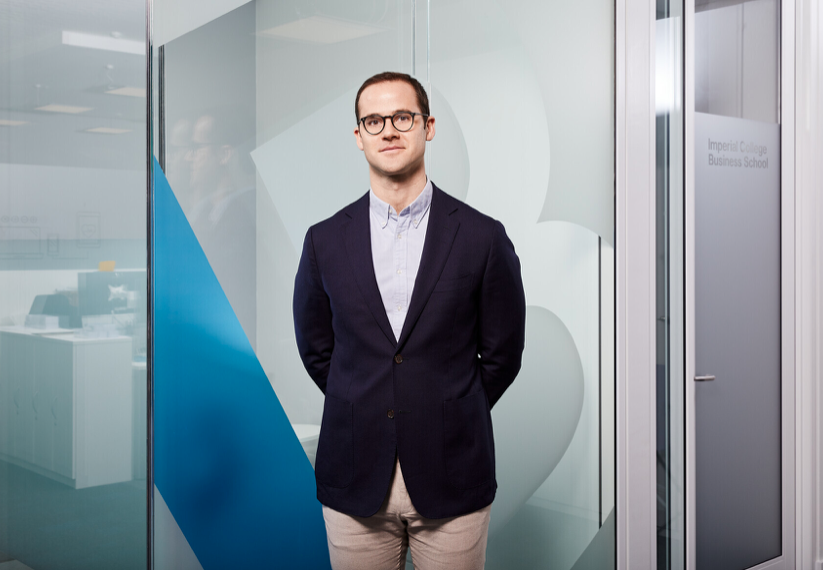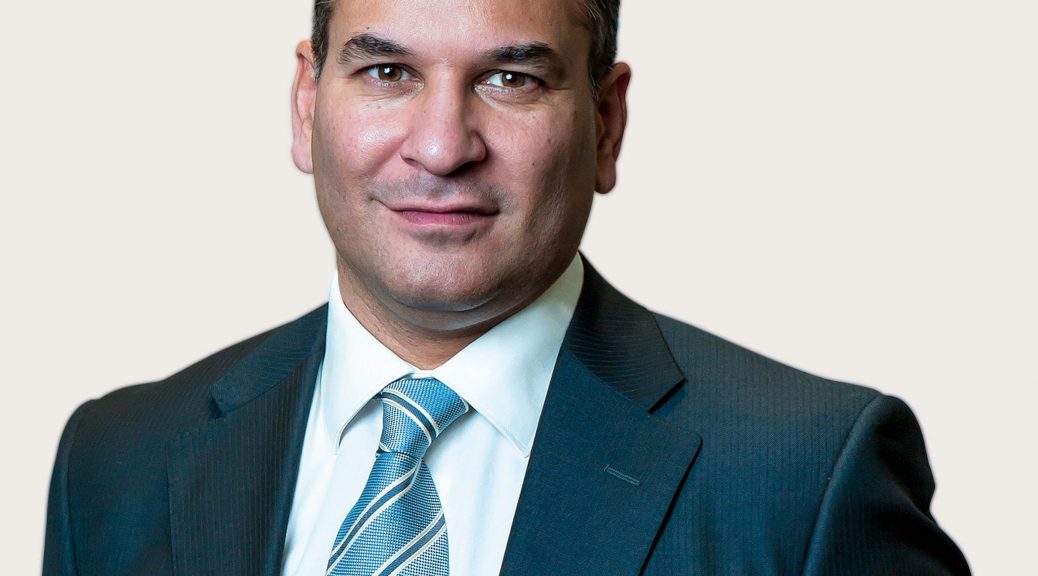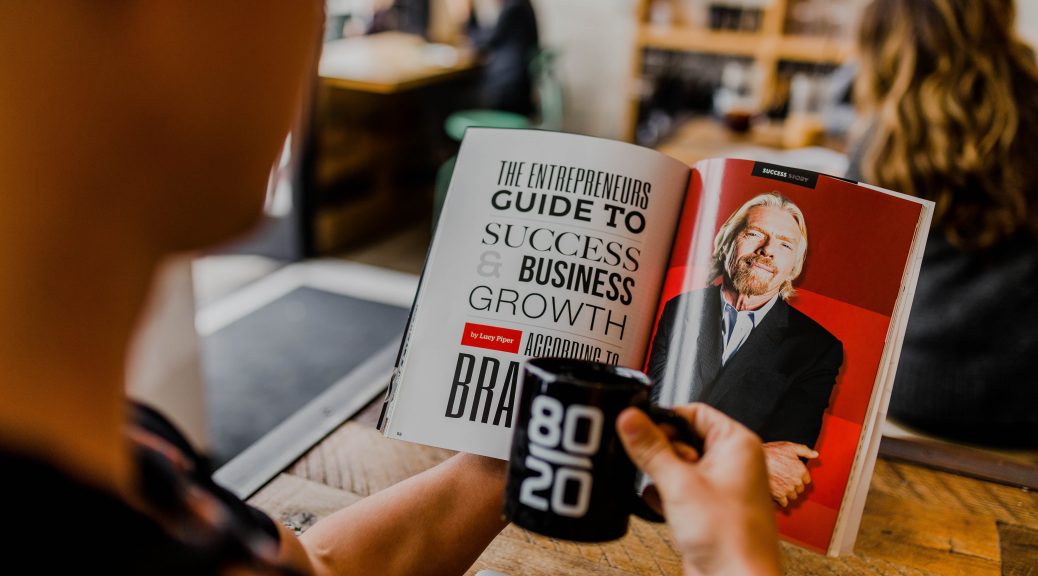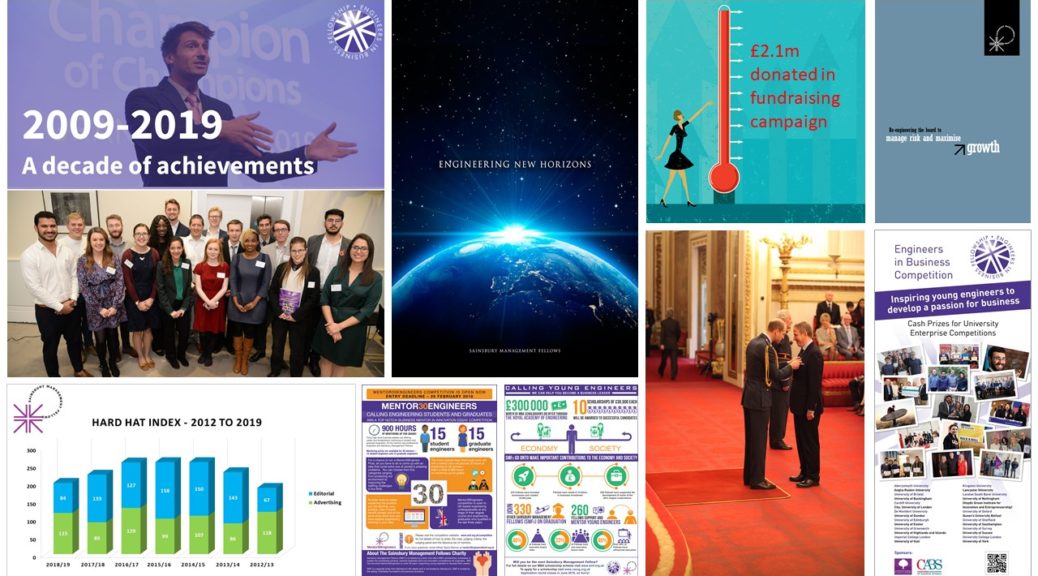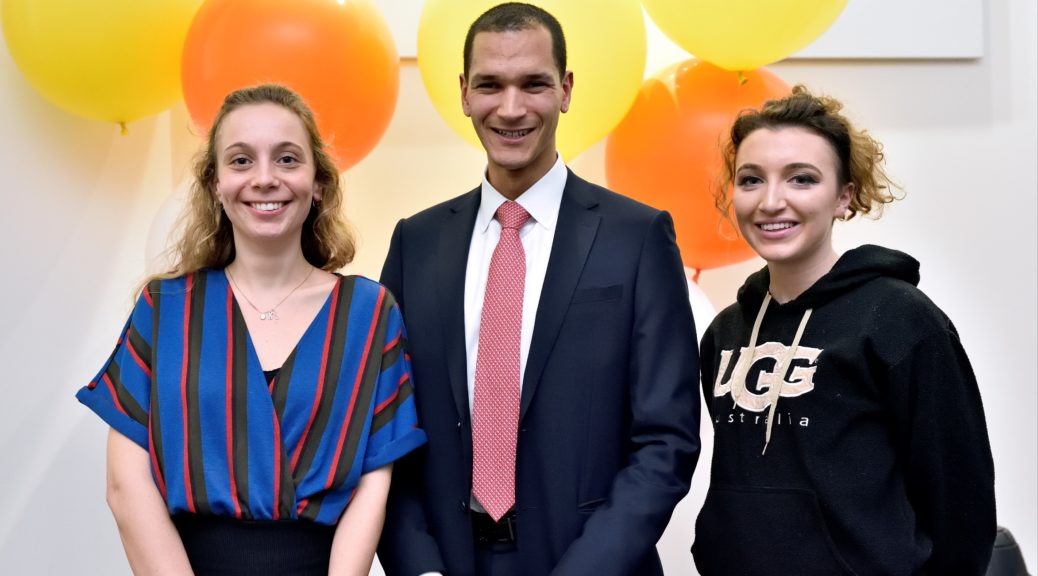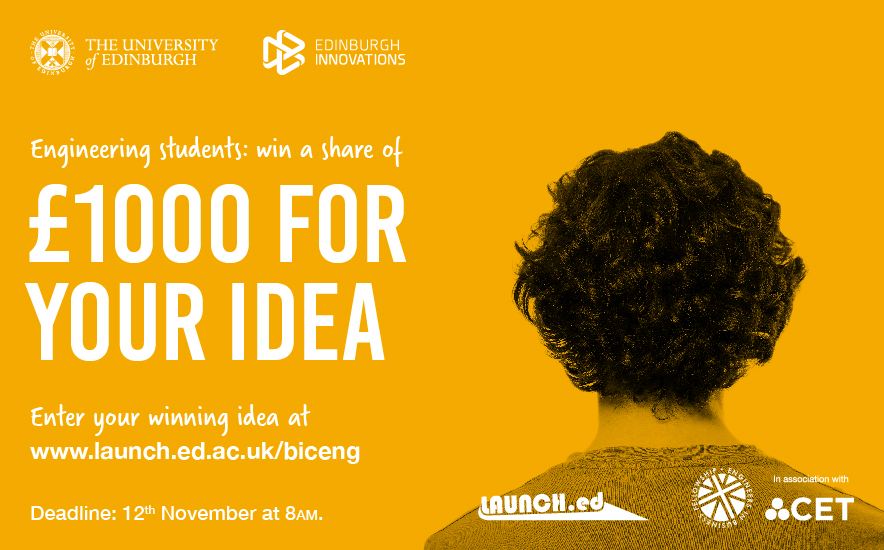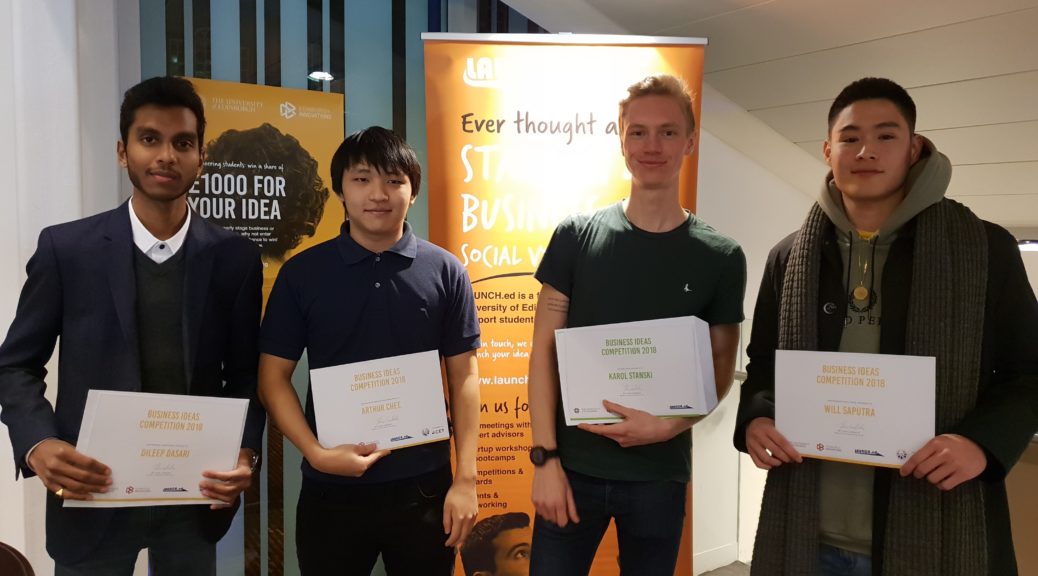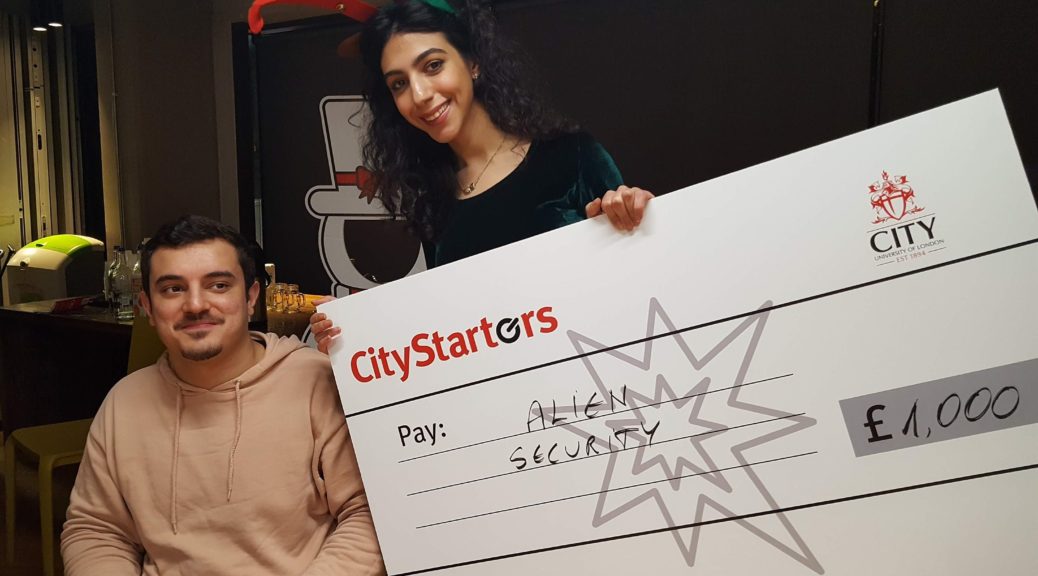
Many engineers can pinpoint a moment in their childhood that sparked a real interest in engineering. For entrepreneur Henning von Spreckelsen, the spark was ignited by his father, who suggested it as a possible career. As an adult, Henning has used a combination of engineering skills and business education to develop an impressive career. He has worked in senior management positions in international companies both large and small, with experience in chemicals, plastics, and packaging, as well as having founded and/or invested in innovative manufacturing and technology companies. One of those companies, Plastecowood, has just become an international award-winning business in the Santander X Environmental Challenge. Here, Henning takes us on a brief tour of his journey from engineering student to entrepreneur.
Becoming an engineer was complete chance. During the careers’ discussion process at school, I had a chat with my dad, and he suggested studying engineering because it would give me a breadth of options, even if I did not want to work in the field at some later point. So, with the help of one of my teachers, after A-Levels, I applied to and was accepted to study electrical engineering at the University of Southampton.
Southampton turned out to be a great choice. It had pioneered the Master of Engineering course and in the fourth and final year, students undertook real-world commercial projects sponsored by companies. From the entire engineering faculty, they took just three or four students from each engineering discipline, and I was one of those selected, therefore ended up studying alongside mechanical, civil, aeronautical and electronic engineers. We did additional courses in basic accounting, law and project management alongside the normal engineering subjects
Thinking Outside the Textbook
In the final year of the programme, we did two commercial projects. One was a marketing study for Southampton airport on the freight and charter brokerage services they could offer to existing and new clients.
The second project was an airborne wind generation unit. The university had been approached by a barrage balloon manufacturer who wanted to test the feasibility of hanging a wind turbine under the balloon to get it 100 to 200 metres up in the air as the wind speed at that height is much greater, more regular and could generate a lot more electricity than at ground level.
Our team worked out a concept design of turbine, cable and generator allowing the company’s idea to pay for itself in three years, but then we realised that the life of a balloon was only three years! I learned then that you can be the best engineer in the world with the best product, but unless you understand the finance and customer side of things and the value of teamwork, you will not be successful.
Although most people think about MBAs a few years into their work life, this project got me thinking about business education early. I felt that an MBA would supplement my engineering knowledge and help me work out how to make companies and products successful.
I was fortunate also that the Master of Engineering programme required students to secure corporate sponsorship. With the help of the university’s corporate links, I interviewed successfully and was sponsored by GEC PLC during the last two summers of my studies. It made a big difference to me as a student because it gave me work experience, a small income and I had a great experience working alongside engineers. Even then, I could see that the engineers who would be most successful would be those that could marry engineering with the financial side of the business.
Becoming a Boffin
After graduation, I joined ICI (then Britain’s largest company) in the “boffins department” the Advanced Process Control Team – we worked on the simulation of chemical plants using rocket simulation software. We wrote programmes that simulated ammonia, hydrogen cyanide, paint, plastics or nitroglycerin plants and then travelled around the world helping ICI factories to make their products more effectively through control engineering and applied common sense. I had thought that being in this department would be dry, but it was fantastic because we were innovating, and we got to travel all over the world and help different divisions improve their performance.
We were only a small team within a large multinational company, so to improve our reach and effectiveness, I developed a course called Tuning for Profit which involved bringing teams from the ICI divisions in training sessions to learn how to reduce costs by “tuning” their factory control systems. They were given a deadline to implement the learnings and every division participating was able to reduce its production costs by implementing what they had learnt with us. This initiative enabled us to amplify the impact of our small, young team, through the people working in the divisions around the world.
Business School and Beyond
Seeing my keen interest in business, the chief engineer at ICI recommended that I read The Machine that Changed the World which is about the Toyota Production System and The Goal by Eliyahu Goldratt which is about improving production performance but written in novel format. These books opened my eyes. I realised that the nascent thoughts about business that began back at university would become the driving force for my career. At that point, I committed to doing the MBA, did my research, did the GMAT and gained a place at IMD Business School in Switzerland. Funding an MBA at a top school can be daunting, so I was delighted to be awarded a Sainsbury Management Fellows scholarship.
One of the attractions of IMD was the multicultural, multilingual nature of the students – there were 42 nationalities in my cohort! I am a German national, educated in the UK and Belgium so I speak fluent French and German and thought that with three languages I would be on par with other students, but the average number of languages spoken was between four and five. You went into the study rooms to debate different cases and it would be done in Spanish in one group, in French in another group; you might have a German lawyer arguing with an Italian engineer in a language that was not their mother tongue – it was impressive.
IMD also offered international consulting projects – companies paid to get fresh, strategic thinking on their operations from MBA students who could analyse their business challenges differently. My team had the exciting opportunity of analysing LEGO’s business and was able to show the board of directors how a major competitor, which one could argue did not produce the toy bricks to the same high quality as LEGO, was gaining market share by turning its packaging into a toy/storage item that the kids could enjoy, rather than throw away cardboard. We recommended a change to LEGO’s packaging strategy as well as the introduction of movie-themed bricks. Within a few years, the company started implementing these proposals and continues to do so today. This was a brilliant experience to have during the MBA course.
Teamwork, Teamwork, Teamwork
Work is full-on from the moment you start business school. On the first day at IMD, I was given three cases to work on and develop a solution for the problems posed. With six years of work experience under my belt, I was feeling confident in handling them. I remember phoning my wife and saying, “I think I’ve got the hang of this; I know what the answers are.” The next morning, I was put in my team, and we discussed the cases – I thought I had nailed the cases the night before but there were at least three different answers to the problems, all of which were better than mine. Later that day all the students came together, about 80 of us, for a session with the professor and to my surprise, there were even further potential solutions to the cases. This demonstrated to me, the power of collaboration and teamwork.
I have never worked so hard, before or since business school. We started at 8am and worked until midnight – it was work, work, and more work! When I did my engineering degree, my notes were in four folders, one for each year of the course. For my one-year MBA, I had 20 folders of double-sided typed pages as well books and other material. It was incredibly intense – you are placed in a group for a month and just as you are getting comfortable, they change the groups to generate different dynamics and pressures. You stand and fall by the group, which is much the same in real life. There were intermittent moments of play though, cultural events from the different nationalities, trips, etc– we even had a series of 5-minute parties – where after hours of working late into the night, we would play loud music through the building for exactly 5 minutes – dance like crazy – then go back to work.
Having the Bottle
After graduating from IMD, I was recruited by Tetra Pak, famous for its UHT milk and juice cartons. After induction and training, I joined a four-strong team that was asked to form a new division. We were tasked with setting up an extrusion blow moulding division to make milk bottles for the price competitive global market. In three years, we grew the division from four to 170 people, with four factories in the UK and Argentina and bidding on over 20 others around the world. I designed and project managed the first factory installation and then had a team of project leaders reporting to me, each project effectively creating “brownfield” startups on customer premises.
I spent an enjoyable three years heading up projects for the division and only left because I wanted to forge out on my own and buy a company and I was fortunate to be backed by Deloitte & Touche corporate finance on a fully contingent basis. One thing led to another, and, over several years, I founded a company that developed an innovative bottle-top technology. The new technology led us to create bottle tops that enabled lighter weight (more environmentally friendly and cheaper) bottles that are faster and easier to fill and eliminated any possibility of leakage after the containers were opened and recapped by consumers.
I raised £6 million to build the first bottle top factory, having all sorts of adventures along the way, raising a further £6+ million a few years later, with all the highs and lows associated with the process. Our first customer for the new bottle top was a small Irish dairy that bought £20,000 worth of stock. The second customer was Del Monte in Canada. The company used our technology for canned fruit and doubled their sales. Del Monte’s market share in Canada soared from 30% to over 60% in less than 12 months, knocking Dole off the top spot. We won an Ameripack award for the product. Our third customer was PepsiCo for whom we created an oval bottle top for Tropicana juices in North America. During these ten years, we filed 170 patents in 30 countries and built factories and a research centre in the EU and the USA. A multinational packaging company, Aptar, has now bought the business and transferred our technology to its portfolio.
Playing a Greater Role
I then began looking at getting involved with companies by investing and/or taking an active role in the business strategy and development of both product and business profitability. Today I am involved in several companies, including underwater yacht and marina lighting through Bluefin LED, with a company called Parafricta International, and Plastecowood. Parafricta sells products made from a high-tech fabric that prevents or eliminates Category 1 pressure ulcers in 14 days. Over the past eight years, they have been working with an NHS trust in the northwest, with thousands of patients using Parafricta products, and the trust has a 75% lower incidence rate of hospital-acquired pressure ulcers than the NHS average. Based on the NHS’s own figures, we estimate the NHS would save upwards of £240 million per annum on the cost of pressure ulcer treatment if it adopted the products across the country.
Plastecowood recycles plastic that would otherwise go to landfills or incineration. The company receives plastic waste, mainly from household collections, and reprocesses it into plastic lumber called Smartawood – it is cheaper than concrete and longer-lasting than wood.
This innovative solution has led to the company being one of six winning projects in the Santander X Environmental Challenge, a global competition for entrepreneurial companies that create more sustainable products.
I am fortunate to have had the opportunity to gain both engineering and business education. I have been able to help previous employers develop and deploy technology that has improved businesses, economies, and people’s lives. Now I get to use my combined skills and experience in companies that I am intrinsically involved with – it is extremely rewarding to work alongside great people who are so passionate about creating value through technology and to use the combination of business and engineering disciplines to help drive the companies forward.
Sainsbury Management Fellows MBA Scholarship
Over thirty years ago Lord Sainsbury had a vision of getting more engineers with business education into boardrooms so that they could make a difference to UK plc. He did this through his MBA scholarship programme for engineers, which is still going strong today, enabling people like me to acquire the business skills needed to help grow the economy. Not only that, the next generation of engineers who have an eye on business leadership, have a set of role models. They can look at the CVs of the 375 SMFs who received an MBA scholarship, and see different pathways towards a diversity of business careers.
For me, the beauty of the SMF network is that there is always somebody who knows something about what you need to know. And as our SMFs get more experienced, they branch out into different ventures, so this network becomes even more valuable over time.
The SMF MBA Scholarship
If you are a professional engineer considering an MBA as a stepping-stone towards a business leadership career, visit our MBA scholarship application page, you could be awarded a £50,000 scholarship.






